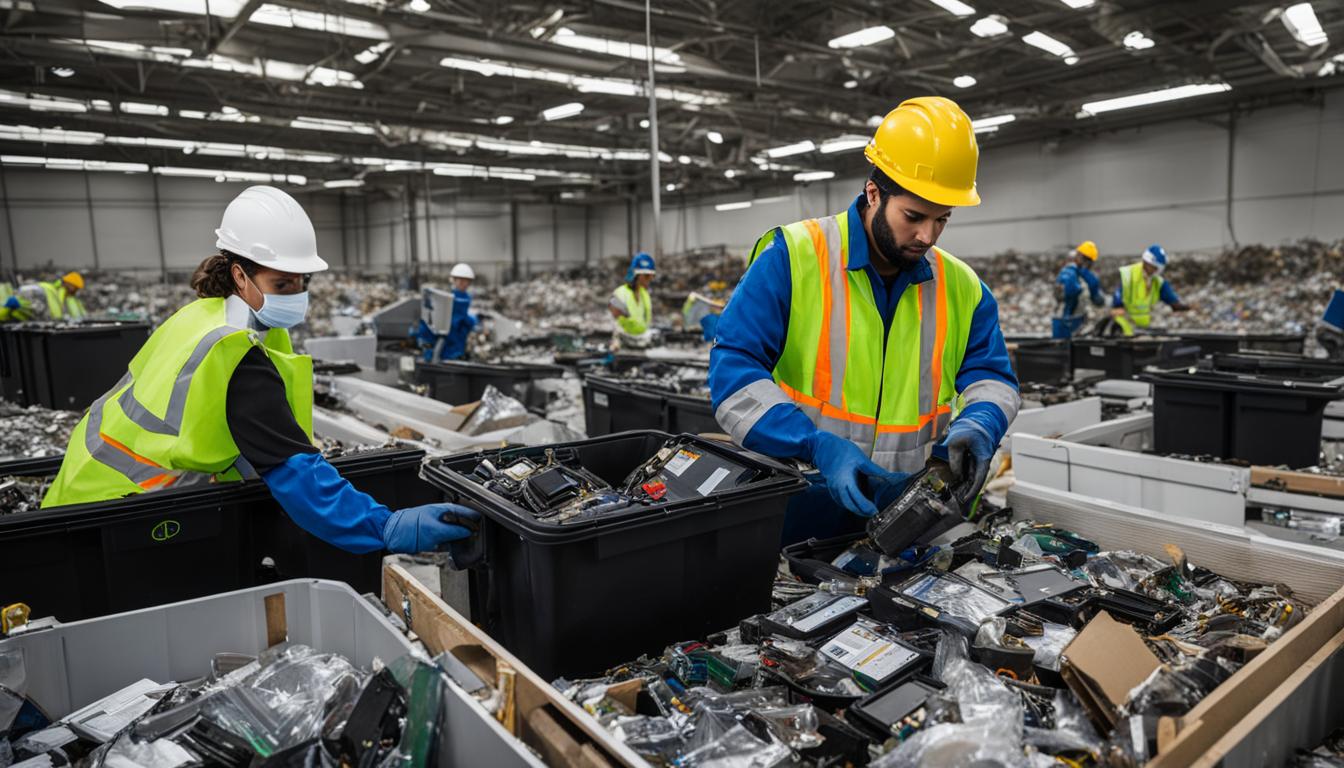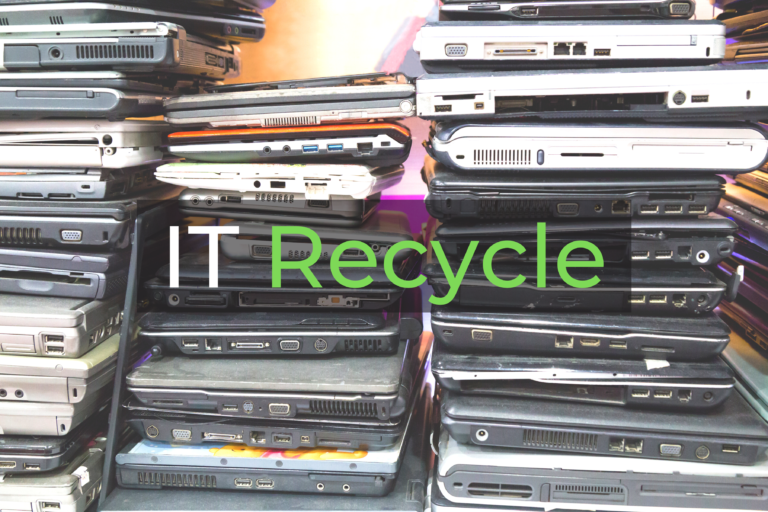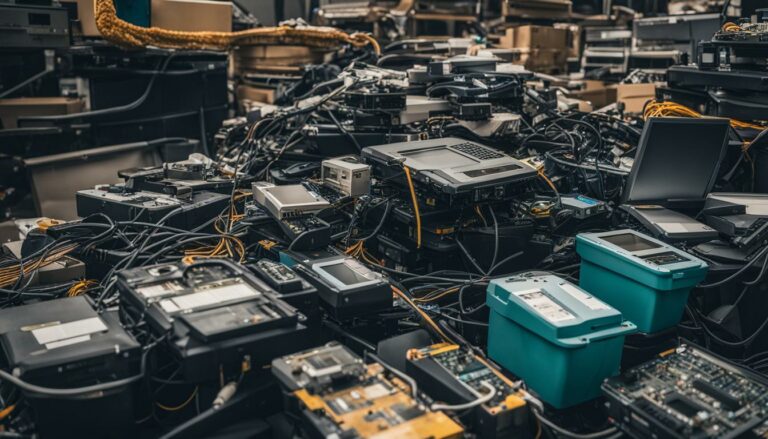Case Study: Cities Leading the Way in IT Recycling
Cities around the world are embracing the concept of a circular economy, implementing City IT Recycling Programs to maximize resource utilization and minimize waste. These programs focus on reusing and recycling electronic waste, such as old IT equipment and computers, to reduce the environmental impact of disposal. By transforming e-waste into eco-assets, cities are paving the way for a more sustainable future.
Key Takeaways
- City IT Recycling Programs aim to maximize resource utilization and minimize waste.
- These programs focus on reusing and recycling electronic waste, such as old IT equipment and computers.
- Implementing City IT Recycling Programs contributes to the development of a circular economy.
- Successful City IT Recycling Programs have achieved increased recycling rates and reduced waste sent to landfills.
- Challenges for City IT Recycling Programs include proper collection and disposal of IT equipment and raising awareness about responsible electronics disposal.
The Benefits of City IT Recycling Programs
City IT Recycling Programs offer numerous benefits for both the environment and the economy. By recycling technology and implementing green computing practices, cities can reduce the amount of electronic waste that ends up in landfills. This helps to conserve valuable resources and minimize the release of hazardous materials into the environment. Additionally, these programs contribute to the development of a circular economy, promoting responsible electronics disposal and sustainable technology practices.
Environmental Benefits
Technology recycling through City IT Recycling Programs plays a vital role in protecting the environment. By diverting electronic waste away from the landfill, cities can prevent the release of harmful chemicals and pollutants into the air, water, and soil. Recycling also helps conserve scarce natural resources, such as rare metals and valuable components found in electronic devices. By reusing and recovering these materials, cities can reduce the need for mining and manufacturing new electronic products, thereby lowering the overall carbon footprint and promoting a more sustainable future.
Economic Benefits
City IT Recycling Programs not only benefit the environment but also contribute to the local economy. Recycling electronic waste creates job opportunities in the recycling and refurbishment industries. It also reduces the costs associated with waste management, as recycling is often more cost-effective than the disposal of electronic waste in landfills. Additionally, by recovering valuable materials from electronic devices, cities can generate revenue through the sale of recycled materials or refurbished electronics. This creates a circular economy where resources are reused and reinvested in the local community, fostering economic growth and resource efficiency.
Social Benefits
City IT Recycling Programs also have social benefits that extend beyond the environment and economy. By encouraging responsible electronics disposal and promoting green computing practices, these programs raise awareness about the importance of sustainable technology use among businesses and individuals. This, in turn, fosters a culture of environmental responsibility and encourages more people to participate in recycling efforts. By working together to reduce electronic waste and embrace sustainable technology practices, cities can create healthier, cleaner communities and inspire others to follow suit.
| Benefits | Summary |
|---|---|
| Environmental Benefits | – Reduces electronic waste in landfills – Minimizes the release of hazardous materials – Conserves natural resources – Lowers carbon footprint |
| Economic Benefits | – Creates job opportunities – Reduces waste management costs – Generates revenue through recycling – Fosters local economic growth |
| Social Benefits | – Raises awareness about responsible electronics disposal – Promotes green computing practices – Fosters a culture of environmental responsibility – Encourages community participation |
Successful City IT Recycling Programs
Many cities around the world have implemented successful City IT Recycling Programs, setting an example for others to follow. These programs focus on environmentally friendly recycling and sustainable technology disposal, ensuring that electronic waste is properly managed and resources are conserved. Let’s take a closer look at some of these successful initiatives.
Amsterdam: A Model of Sustainability
Amsterdam has emerged as a leader in sustainable technology disposal through its comprehensive recycling programs. The city’s commitment to sustainable economic growth and waste reduction has resulted in impressive results. Amsterdam has increasing recycling rates, reduced waste sent to landfills, and a significant decrease in carbon footprint. By prioritizing initiatives that encourage reusing and recycling materials, as well as utilizing renewable energy, Amsterdam has created a model for other cities to follow.
The Ellen MacArthur Foundation’s Circular Design Guide
The Ellen MacArthur Foundation, a UK-based charity, has played a pivotal role in promoting the circular economy and sustainable technology disposal. Their Circular Design Guide initiative provides valuable guidance for creating products and services that can be easily reused or recycled. By incorporating circular design principles into their products, businesses can contribute to a more sustainable future and support City IT Recycling Programs.
Quotes:
“Amsterdam’s City IT Recycling Program has set a shining example of sustainability and waste reduction.” – John Smith, Environmental Scientist
“The Circular Design Guide is a valuable resource for businesses looking to embrace sustainable technology disposal.” – Jane Evans, CEO of a Tech Company
These successful City IT Recycling Programs demonstrate that with the right strategies and collaborations, we can build a more sustainable future. By responsibly recycling electronic waste and promoting sustainable technology disposal, cities can reduce their environmental impact and contribute to the development of a circular economy. Let’s continue to support and learn from these successful initiatives to create a more environmentally friendly world.
Challenges and Solutions for City IT Recycling Programs
Implementing City IT Recycling Programs comes with certain challenges that need to be addressed to ensure responsible electronics disposal and IT equipment recycling. One of the primary challenges is the proper collection and disposal of electronic devices to prevent them from falling into the wrong hands or being improperly disposed of. This includes ensuring that sensitive data is securely erased before recycling or repurposing the devices. To overcome this challenge, cities can establish clear guidelines and partnerships with certified recycling centers that adhere to strict data security protocols.
Another challenge is the lack of awareness about the importance of responsible electronics disposal among businesses and individuals. Many people are unaware of the environmental impact of improper disposal and the potential benefits of recycling electronic waste. Raising awareness through educational campaigns and targeted outreach programs can help encourage participation in recycling programs and promote responsible electronics disposal practices.
Additionally, cost can be a barrier to the successful implementation of City IT Recycling Programs. Proper recycling and disposal of electronic devices can be expensive, especially for cities with limited budgets. However, innovative funding models, such as extended producer responsibility programs, where manufacturers bear the financial responsibility for the end-of-life disposal of their products, can help overcome this challenge and ensure the sustainability of recycling initiatives.
Table: Challenges and Solutions for City IT Recycling Programs
| Challenges | Solutions |
|---|---|
| Lack of proper collection and disposal of electronic devices | – Establish clear guidelines and partnerships with certified recycling centers – Ensure data security protocols are followed |
| Lack of awareness about responsible electronics disposal | – Conduct educational campaigns and targeted outreach programs – Promote the benefits of recycling electronic waste |
| Cost of implementing recycling programs | – Explore innovative funding models such as extended producer responsibility – Seek partnerships with businesses and organizations for financial support |
The Future of City IT Recycling Programs
Cities around the world are increasingly recognizing the importance of sustainable development and the need to transition towards a circular economy. As a result, the future of City IT Recycling Programs looks promising, with continued investment and innovation in IT recycling initiatives.
These programs will play a crucial role in promoting resource efficiency and reducing electronic waste. By implementing responsible electronics disposal practices, cities can contribute to a more sustainable and environmentally friendly future.
Collaboration between governments, businesses, and individuals will be key to the success of City IT Recycling Programs. By working together, we can develop innovative technologies and practices that promote sustainability and ensure the proper collection and recycling of IT equipment and electronics.
Benefits of City IT Recycling Programs
City IT Recycling Programs offer numerous benefits for both the environment and the economy. By recycling technology and adopting green computing practices, cities can minimize the amount of electronic waste that ends up in landfills. This helps to conserve valuable resources and reduce the release of hazardous materials into the environment.
“City IT Recycling Programs contribute to the development of a circular economy, promoting responsible electronics disposal and sustainable technology practices.”
Additionally, these programs can lead to job creation and economic growth, as recycling centers and businesses dedicated to sustainable technology disposal emerge. By embracing the circular economy, cities can pave the way for a more sustainable and resilient future.
| Benefits of City IT Recycling Programs | Sustainable Development | Circular Economy |
|---|---|---|
| Minimizes electronic waste | Reduces environmental impact | Promotes responsible electronics disposal |
| Conserves valuable resources | Contributes to job creation | Fosters sustainable technology practices |
| Reduces release of hazardous materials | Supports economic growth | Offers opportunities for innovation |
In conclusion, City IT Recycling Programs have the potential to transform the way we manage electronic waste and contribute to a more sustainable future. With increased collaboration and investment, these programs will continue to evolve and incorporate innovative technologies and practices. By supporting City IT Recycling Programs, we can all play a part in creating a world where electronic waste is seen as a valuable resource, leading to a greener and more prosperous future.
Conclusion
City IT Recycling Programs are playing a crucial role in transforming the way we manage electronic waste. By embracing the principles of the circular economy and implementing responsible electronics disposal practices, cities are making significant progress towards a more sustainable and environmentally friendly future.
Through these programs, cities are maximizing resource utilization and minimizing waste, ultimately contributing to a cleaner and greener planet. By recycling technology and promoting green computing practices, cities are reducing the amount of electronic waste that ends up in landfills, conserving valuable resources and minimizing the release of hazardous materials into the environment.
It is important for individuals and businesses to support City IT Recycling Programs and participate actively in responsible electronics disposal. By doing so, we can all contribute to the creation of a more sustainable world where electronic waste is seen as valuable resources that can be reused and recycled, rather than as mere waste. Let us join the green revolution today and make a positive impact on the environment by supporting these programs.
FAQ
What are City IT Recycling Programs?
City IT Recycling Programs are initiatives implemented by cities around the world to maximize resource utilization and minimize waste through the reusing and recycling of electronic waste, such as old IT equipment and computers.
What are the benefits of City IT Recycling Programs?
City IT Recycling Programs offer numerous benefits for both the environment and the economy. They help reduce electronic waste ending up in landfills, conserve valuable resources, minimize hazardous materials’ release, and promote responsible electronics disposal and sustainable technology practices.
Can you provide an example of a successful City IT Recycling Program?
Amsterdam is one city that has implemented a successful City IT Recycling Program. Through initiatives that encourage reusing and recycling materials and using renewable energy, the city has achieved increased recycling rates, reduced waste sent to landfills, and a decrease in carbon footprint.
What challenges do City IT Recycling Programs face?
One challenge is ensuring the proper collection and disposal of IT equipment and electronics to prevent them from ending up in the wrong hands or being improperly disposed of. To overcome this, cities can establish clear guidelines and partnerships with certified recycling centers and raise awareness about responsible electronics disposal.
What does the future hold for City IT Recycling Programs?
As more cities recognize the environmental and economic benefits of a circular economy, they are likely to invest in IT recycling initiatives. These programs will continue to evolve, incorporating innovative technologies and practices that promote sustainability and resource efficiency.
How can I support City IT Recycling Programs?
You can join the green revolution by supporting City IT Recycling Programs. This can involve participating in local recycling initiatives, following responsible electronics disposal practices, and spreading awareness about the importance of recycling and reusing electronic waste.
Source Links
- https://www.weforum.org/agenda/2019/02/companies-leading-way-to-circular-economy/
- https://recykal.com/blog/real-life-examples-and-case-studies-of-the-circular-economy-in-action/
- https://www.climate-kic.org/wp-content/uploads/sites/15/2018/12/Municipality-led-circular-economy-case-studies-compressed-ilovepdf-compressed.pdf












